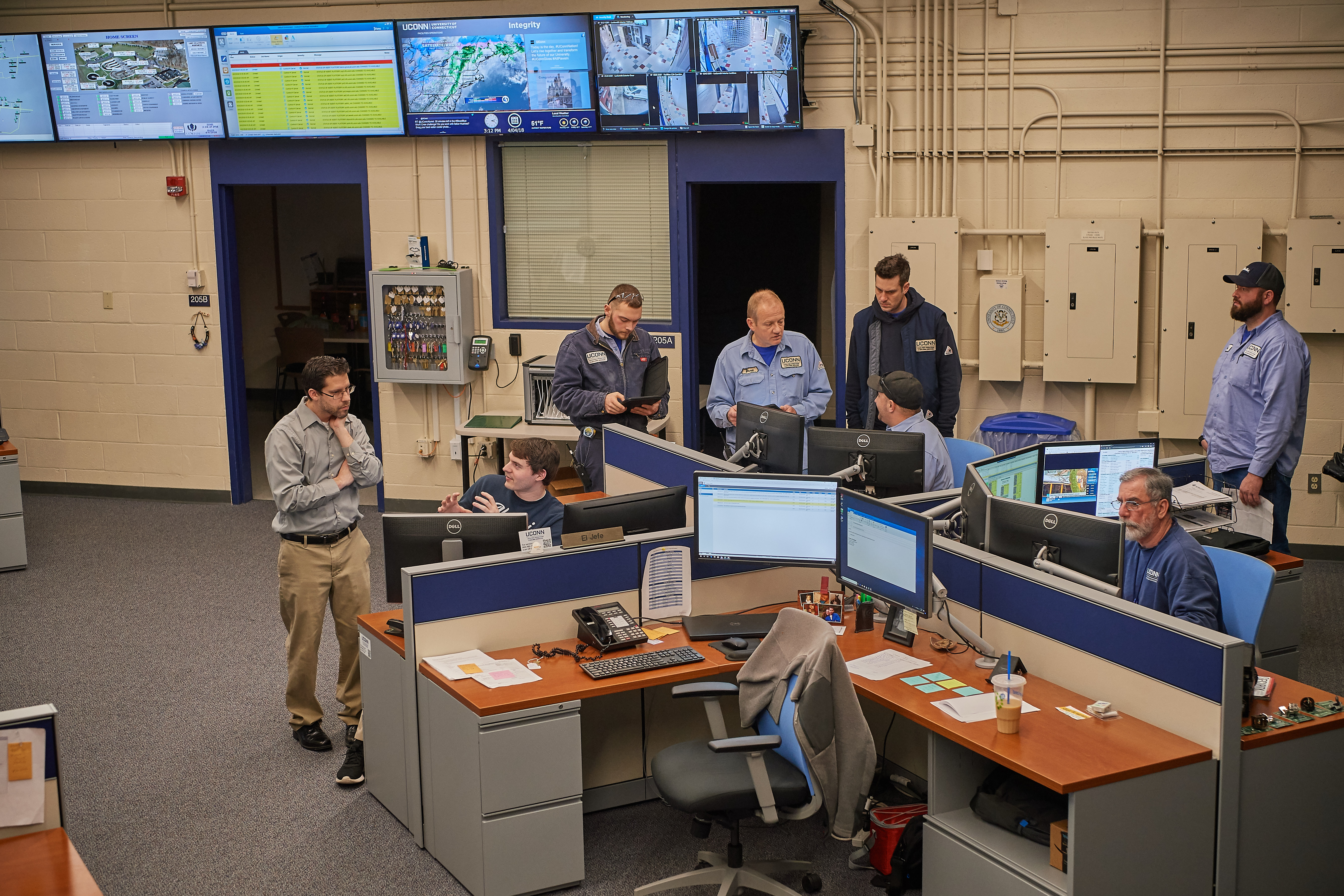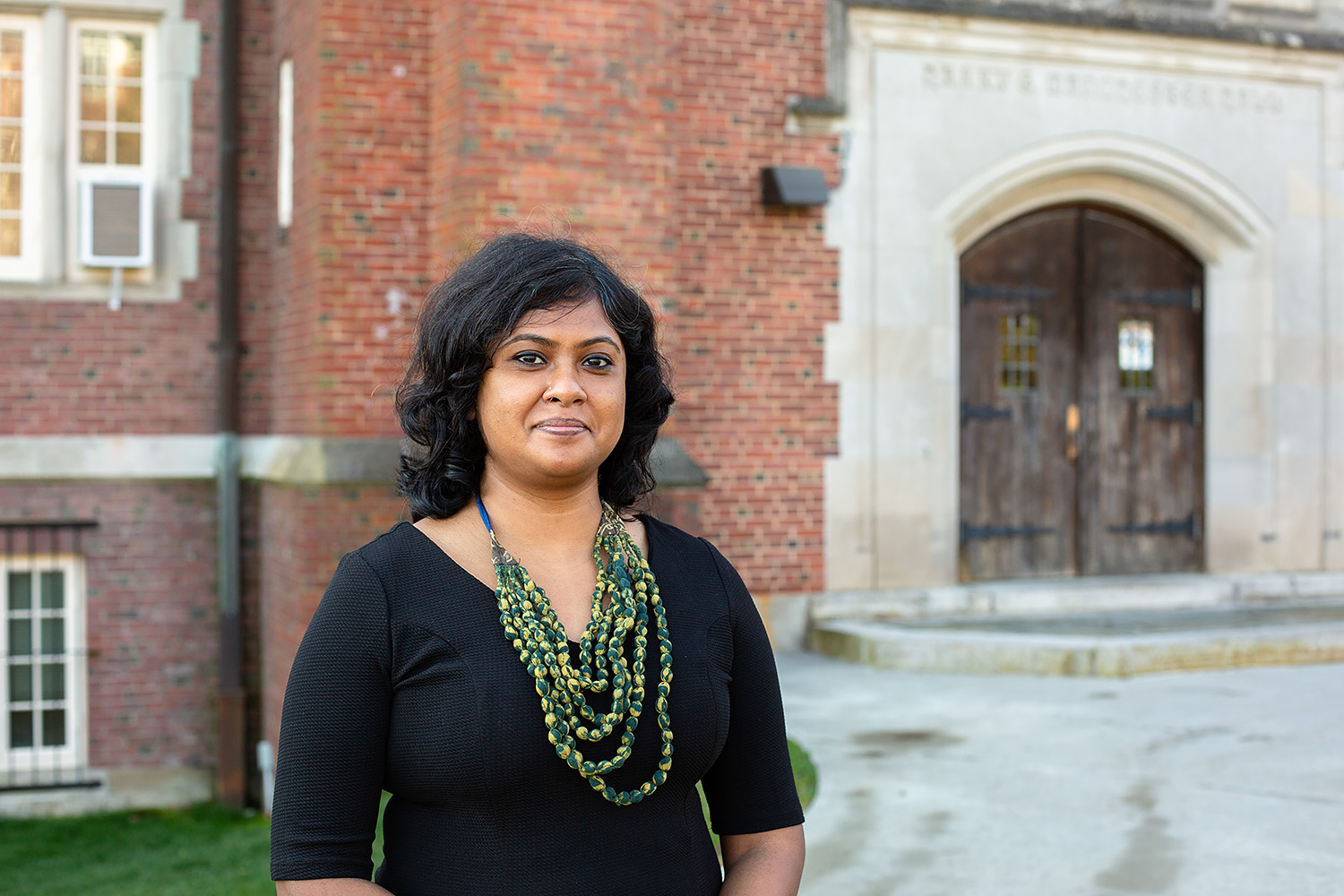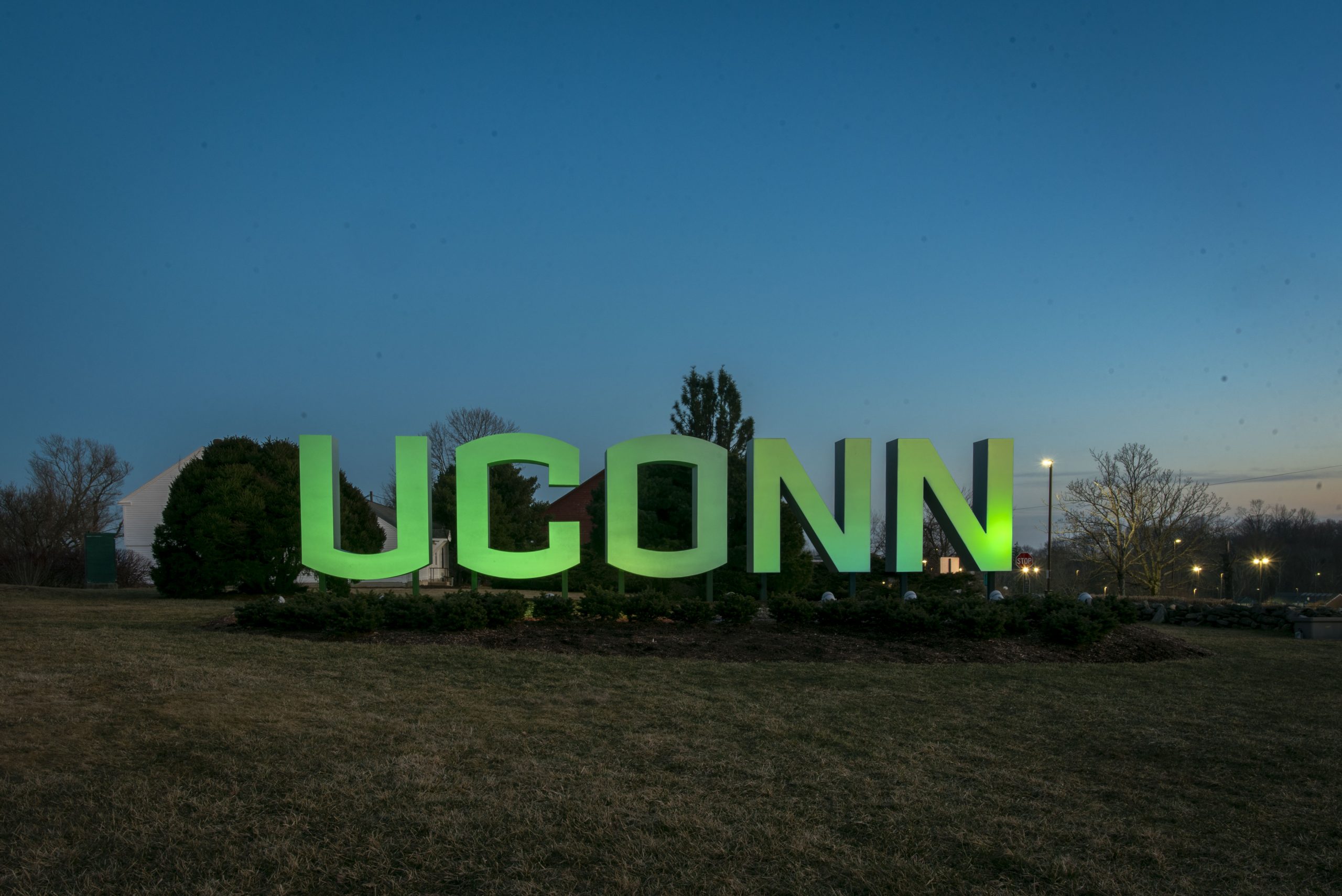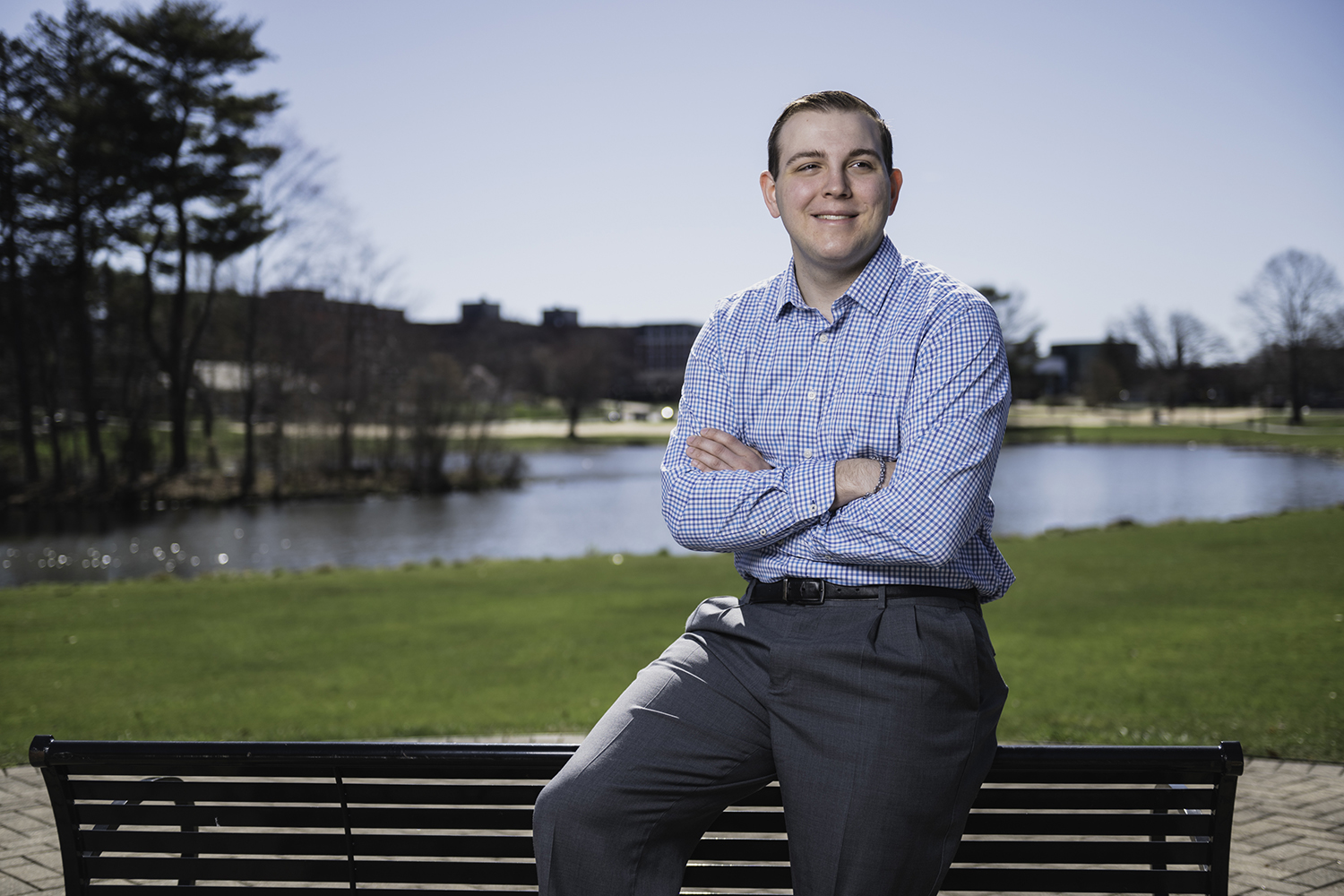The University of Connecticut is never totally asleep or closed for business – there is always something happening, no matter the day of the week or hour of the day.
Over the past year, a new Operations Center has become the hub for many round-the-clock functions that used to take place in a number of different parts of campus.
Housed in the Facilities and Operations Building, the Center opened in May 2017 under the direction of staff members Andrew Kelly and Jeremy Friedman. From dealing with lockouts, to directing new students to their rooms if they arrive in the middle of the night, monitoring the power supply and information technology services, and making sure all security cameras are functioning, the Operations Center provides centralized 24-7 coverage to students and staff all across the Storrs campus.
“We have centralized a lot of functions on campus and provided efficiency to do tasks that need to happen 24 hours a day,” says Kelly. “We want to be supportive of other operations on campus and respectful of other departments. We want to be an additional resource to the University to areas that require 24-hour staffing.”
During the normal workday, there are upwards of seven full-time staff members and a robust student workforce in the Center. Overnight, on weekends and holidays, it is staffed with one professional and several students.
“We are the only 24-7 call center on campus, other than public safety of course,” says Kelly. “Every day is busy, and it really depends on the particular day what keeps us the busiest. It’s more about having an ‘in case of’ place on campus.”
The Operations Center is the first call for any facilities emergencies that happen beyond the normal business hours. As such, it has assumed the after-hours front-line duties of the Department of Residential Life, with the most common issue being lockouts.
“We have always had options for 24-hour coverage, but the Operations Center has made it all centralized,” says Amy Crim, associate director of housing services. “Our job is to develop students and help them become good citizens. [The Center] shares the same philosophy we do, and that has developed into a very positive relationship.”
Crim says the Center has also been very helpful for summer camps and conferences, in addition to fall semester check-in.
“There have been times when international students arrive in the middle of the night and might not know where to go,” says Kelly. “We can be of assistance to get them into their rooms.”
Another area where the Operations Center has provided support is the overnight monitoring of the activities of Information Technology Services (ITS).
“For a long time, we ran a 24-hour operation based on the mainframe that was decommissioned a few years ago,” says Mike Williams, director of telecommunications for ITS. “That mainframe was very human action-dependent, and we had someone on it 24-7. When we got our new mainframe, we did not need that 24-hour coverage, it was more of an 8 a.m. to 5 p.m. orientation.”
Williams worked with Kelly and Friedman for the Operations Center to provide support for ITS. “It’s about working together and creating efficiencies,” he says.
One of the several large television screens in the Operations Center is dedicated solely to ITS and the various operations that happen overnight. The Center doesn’t actually fix the problems, but simply keeps the overnight watch.
“If those programs fail at night, there is going to be a problem the next day when people come into work,” says Williams. “We used to have someone come in overnight and monitor that. Now, we can have that person do other work during the day.”
A network monitoring program also alerts the Operations Center if there is a power failure on campus. The University’s two data centers in Storrs need to be monitored to ensure that air conditioning and power are always on.
“We have woken staff up in the middle of the night to let them know something was wrong,” says Kelly.
The Operations Center is also in charge of making sure that all security cameras are properly functioning, so that Public Safety can use that resource. That includes some 800 security cameras on the Storrs campus, and additional devices on the regional campuses. Non-emergency alarms are also monitored at the Operations Center.
The Operations Center serves as an asset manager for about 80 percent of campus, including building systems that are responsible for the heating and cooling of facilities.
“We want to know when it’s time for preventive maintenance for these types of systems,” says Kelly, “rather than deal with reactive maintenance.”



